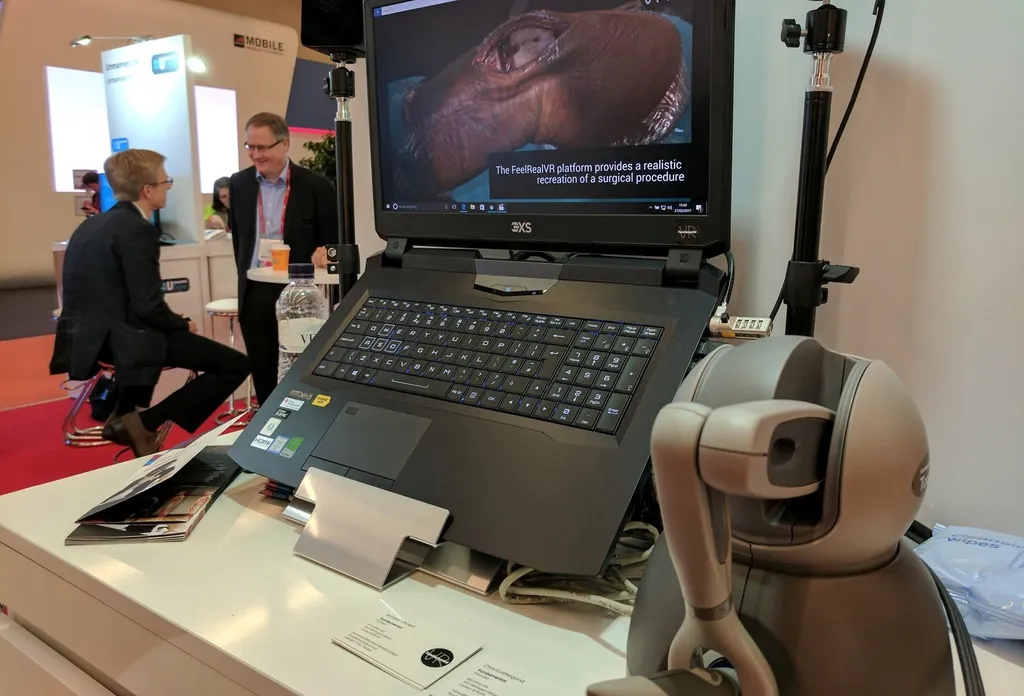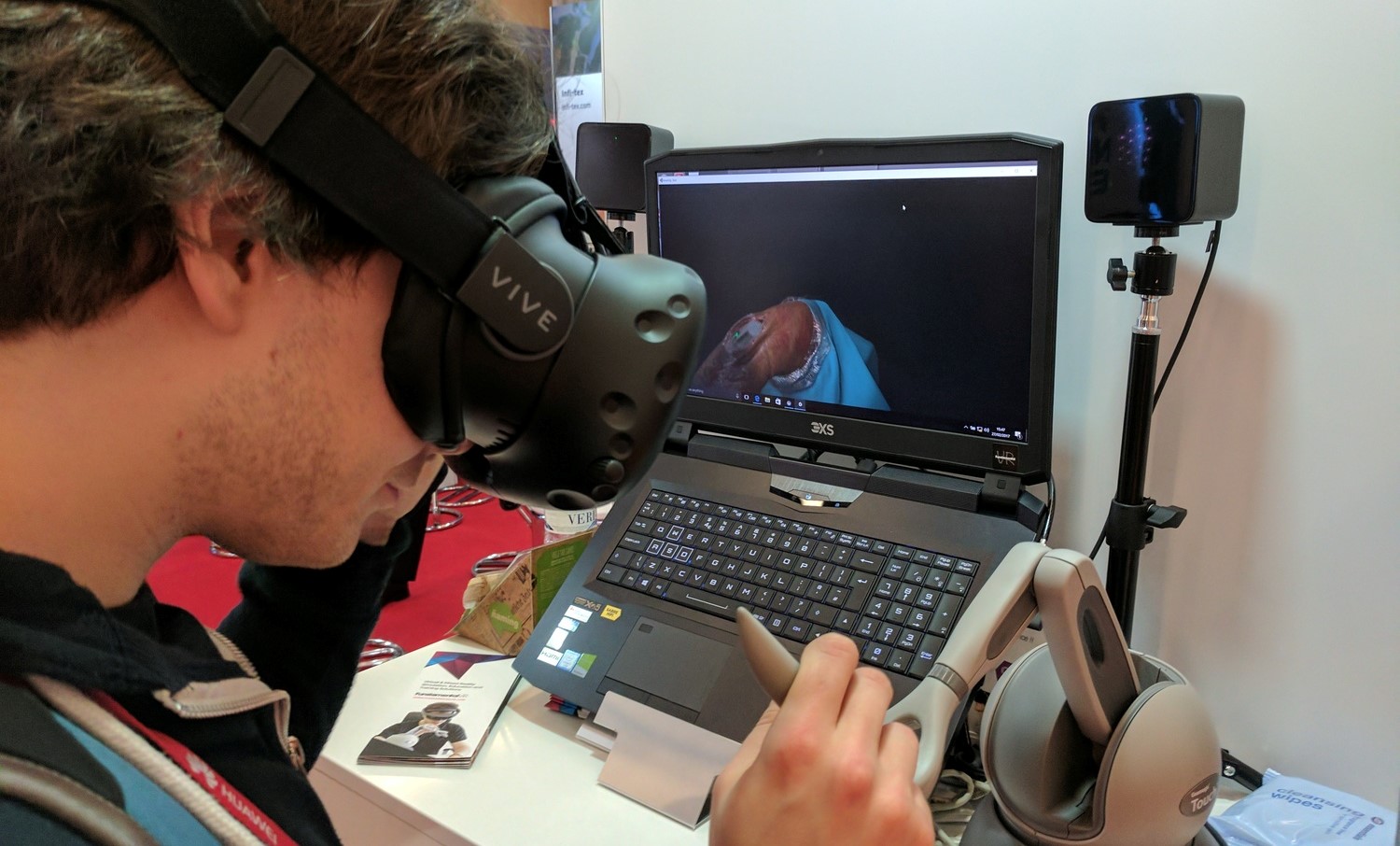Like many people, I’m not great with needles. Just looking at them sends a shiver coursing through my body, and I find myself instinctively backing away. Once you’ve had your first injection, that thin, precise pinpoint of pain sticks in your mind and it’s hard to forget. It was with some bravery, then, that I picked up a syringe and used it in VR.
At MWC this week, UK-based Fundamental VR put me on the other side of the equation, as a doctor actually injecting a needle into a patient, and it was another kind of experience entirely.
Fundamental worked with Pacira Pharmaceutical to create FeelRealVR, a platform that offers surgery simulation with incredible haptic feedback. You might well have seen the peripheral used to do this before; the user holds a pen-shaped device that’s attached to a robotic arm that will apply the correct amount of pressure relative to where the needle is trying to inject. It’s a startlingly stubborn device; as I push against a bone it refuses to budge and I feel it scrape as I move it across the surface.
When I push the needle into the skin, however, it gives me just a moment’s resistance before slowly allowing me to sink it into an opened kneecap, with gruesomely convincing friction making me feel like I was really pushing it into someone’s body. It reminded me of when I’d have an anaesthetic injection when having teeth taken out, with that slight pause to break the surface before it pushes in. It was bone-chillingly accurate.
The demo itself was a perfect example of what VR can do for the healthcare industry. The areas I needed to inject were highlighted and I had to make sure I didn’t administer too much to the liquid inside the syringe. I couldn’t imagine a better tool for training surgeons.
Fundamental VR’s Richard Vincent told me the studio had reached this amazing level of realism by working closely with hospitals. A few institutions are even using its tech with more elaborate software, though it wasn’t allowed to demo that at MWC.
The team is also working with Microsoft’s HoloLens for a mixed reality version of its software, and can create other scenarios by simulating a scalpel instead of a needle. FeelRealVR looks to be a versatile platform, then, and now that could be instrumental in training new generations of surgeons.































